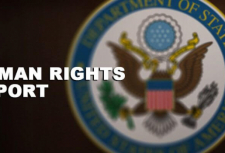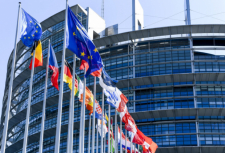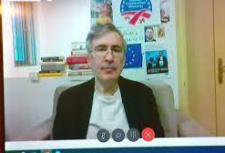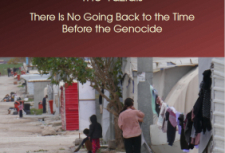Kurdish language and its dialects
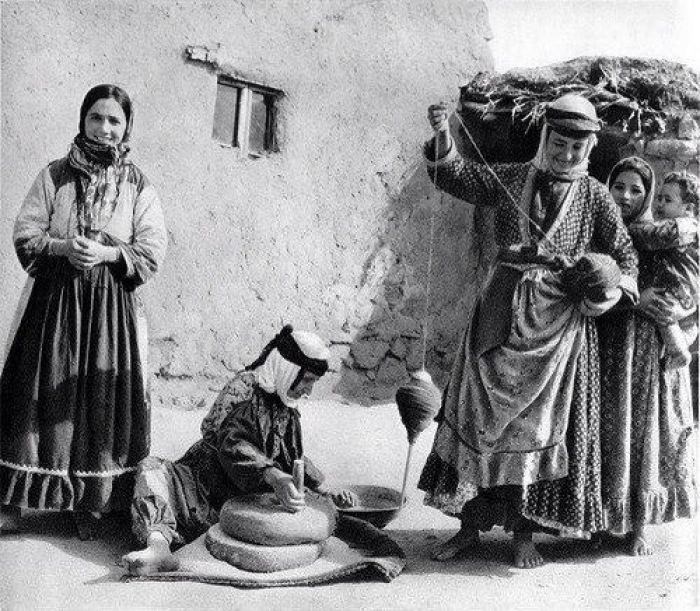
According to the statements of Kurdish scholars, throughout its history, the Kurdish language has repeatedly undergone changes. According to some sources, the proto-Slavic dialect was replaced by Kartvelian, and then Indo-European. However, despite all these changes, the Kurds have maintained their language (kurmanji dialect) about 6 thousand of Slavic words to the present day. The great majority of the Kurdish people uses Kurmanji dialect. The modern Kurdish language belongs to the North-Western subgroup of Iranian languages belonging to the Indo-Iranian branch of the Indo-European language family, which has nothing in common with Arabic and Turkic languages. It is similar to Persian and other languages of the Iranian group as Russian is similar to Polish or Norwegian to German.
As an independent language, according to the available information in Kurdish, the Kurdish language has existed since the Achaemenid period (VI — IV centuries BC).
Total for the Kurdish people called "Kurds", which is a derivative of geographic names "Kor Didi", is found in Greek sources as the name of the present Central part of Kurdistan, which later was renamed "Bahdinan" — "place of faith", "sanctuary". There are also names and self-names of certain groups of Kurdish people speaking different dialects: "kurmanj", calling their dialect "Kurmanji"; "soran", calling their dialect "Sorani"; "Lur", the dialect of which is called "Luri"; "Goran", calling their dialect "Gorani". They are followed by the names and self-names of individual tribal and religious associations: "Muslim Kurds" and "Yazidi (ezdi)»
The Kurdish language is a single, national language, a means of communication for the entire Kurdish people. It preserves the autonomy and traditions throughout the distribution without regard to the fragmentation of parts of the speaker on its people.
Basically, the Kurds use only their native Kurdish language. However, some groups of the Kurdish people have bilingualism — Kurdish-Iranian (in Iranian Kurdistan), Kurdish-Turkish (in Turkish Kurdistan), Kurdish-Arab (in Iraqi and Syrian Kurdistan), Kurdish-Armenian, Kurdish-Georgian, Kurdish-Azerbaijani, Kurdish-Russian (in some CIS republics).
Native speakers of all Kurdish dialects, despite their considerable territorial fragmentation, have a single ethnic and national identity. The dialects themselves, having a single grammatical structure and a common vocabulary, in some cases differ sharply from each other in their phonetic, lexical and syntactic features. Among them, only the main dialects-Kurmanji, Sorani and, to some extent, Gorani — have been studied in comparative terms.
The interest of Orientalists in the Kurdish language increases significantly in the first half of the XX century. This period includes the works of O. Mann, E. Souna, L. Fossum, R. Jardin, P. Beidar, devoted to the grammar of the Kurdish language, the description of its dialects.
More intensively and thoroughly studied the Kurdish language since the late 50s. In 1956, the grammar of the Kurdish language Ali Badirkhan Kamuran, in 1957 — the study of the English kurdologist D. N. McKenzie, devoted to the comparative study of Kurdish dialects.
The Institute of Oriental studies and the Institute of linguistics of the Russian Academy of Sciences, the Institute of Oriental studies of the Republic of Armenia continue to be the leading centers of Kurdish studies. Among the most important works on the Kurdish language, written by the staff of these institutions, should be called: "The language of the Kurds of the USSR" Ch.Kh. Bakayev (M., 1973), "the Grammar of the Kurdish language on the material of dialects Kurmanji and Sorani" K. Kurdoev (M., 1978). "Essays on Kurdish grammar" by I. I. Tsukerman (M.—L., 1962), "the basics of the phraseology of the Kurdish language" by M. W. Havana (Yerevan, 1982), and others.
Translated David Babaev
Yazidis.info
Tags:
Kurdish language and its dialects

According to the statements of Kurdish scholars, throughout its history, the Kurdish language has repeatedly undergone changes. According to some sources, the proto-Slavic dialect was replaced by Kartvelian, and then Indo-European. However, despite all these changes, the Kurds have maintained their language (kurmanji dialect) about 6 thousand of Slavic words to the present day. The great majority of the Kurdish people uses Kurmanji dialect. The modern Kurdish language belongs to the North-Western subgroup of Iranian languages belonging to the Indo-Iranian branch of the Indo-European language family, which has nothing in common with Arabic and Turkic languages. It is similar to Persian and other languages of the Iranian group as Russian is similar to Polish or Norwegian to German.
As an independent language, according to the available information in Kurdish, the Kurdish language has existed since the Achaemenid period (VI — IV centuries BC).
Total for the Kurdish people called "Kurds", which is a derivative of geographic names "Kor Didi", is found in Greek sources as the name of the present Central part of Kurdistan, which later was renamed "Bahdinan" — "place of faith", "sanctuary". There are also names and self-names of certain groups of Kurdish people speaking different dialects: "kurmanj", calling their dialect "Kurmanji"; "soran", calling their dialect "Sorani"; "Lur", the dialect of which is called "Luri"; "Goran", calling their dialect "Gorani". They are followed by the names and self-names of individual tribal and religious associations: "Muslim Kurds" and "Yazidi (ezdi)»
The Kurdish language is a single, national language, a means of communication for the entire Kurdish people. It preserves the autonomy and traditions throughout the distribution without regard to the fragmentation of parts of the speaker on its people.
Basically, the Kurds use only their native Kurdish language. However, some groups of the Kurdish people have bilingualism — Kurdish-Iranian (in Iranian Kurdistan), Kurdish-Turkish (in Turkish Kurdistan), Kurdish-Arab (in Iraqi and Syrian Kurdistan), Kurdish-Armenian, Kurdish-Georgian, Kurdish-Azerbaijani, Kurdish-Russian (in some CIS republics).
Native speakers of all Kurdish dialects, despite their considerable territorial fragmentation, have a single ethnic and national identity. The dialects themselves, having a single grammatical structure and a common vocabulary, in some cases differ sharply from each other in their phonetic, lexical and syntactic features. Among them, only the main dialects-Kurmanji, Sorani and, to some extent, Gorani — have been studied in comparative terms.
The interest of Orientalists in the Kurdish language increases significantly in the first half of the XX century. This period includes the works of O. Mann, E. Souna, L. Fossum, R. Jardin, P. Beidar, devoted to the grammar of the Kurdish language, the description of its dialects.
More intensively and thoroughly studied the Kurdish language since the late 50s. In 1956, the grammar of the Kurdish language Ali Badirkhan Kamuran, in 1957 — the study of the English kurdologist D. N. McKenzie, devoted to the comparative study of Kurdish dialects.
The Institute of Oriental studies and the Institute of linguistics of the Russian Academy of Sciences, the Institute of Oriental studies of the Republic of Armenia continue to be the leading centers of Kurdish studies. Among the most important works on the Kurdish language, written by the staff of these institutions, should be called: "The language of the Kurds of the USSR" Ch.Kh. Bakayev (M., 1973), "the Grammar of the Kurdish language on the material of dialects Kurmanji and Sorani" K. Kurdoev (M., 1978). "Essays on Kurdish grammar" by I. I. Tsukerman (M.—L., 1962), "the basics of the phraseology of the Kurdish language" by M. W. Havana (Yerevan, 1982), and others.
Translated David Babaev
Yazidis.info
Tags:

